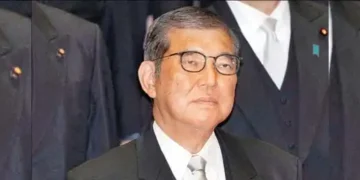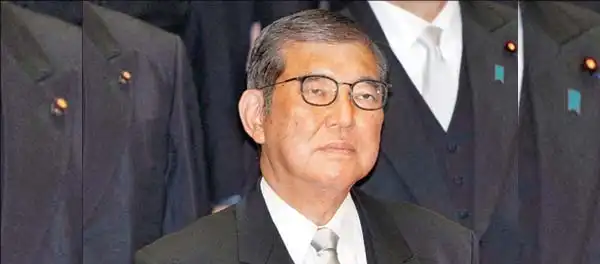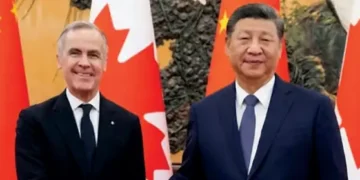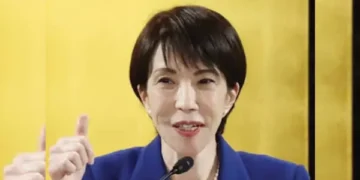Blitz Bureau
JAPAN’S ruling coalition lost control of the upper house in an election on July 20, further weakening Prime Minister Shigeru Ishiba’s grip on power even as he vowed to remain party leader, citing a looming tariff deadline with the United States.
While the ballot does not directly determine whether Ishiba’s administration will fall, it heaps pressure on the embattled leader who also lost control of the more powerful lower house in October.
Ishiba’s Liberal Democratic Party (LDP) and coalition partner Komeito returned 47 seats, short of the 50 seats it needed to ensure a majority in the 248-seat upper chamber in an election where half the seats were up for grabs.
That comes on top of its worst showing in 15 years in October’s lower house election, a vote which has left Ishiba’s administration vulnerable to no-confidence motions and calls from within his own party for leadership change. Speaking after exit polls closed, Ishiba told NHK he “solemnly” accepted the “harsh result”.
“We are engaged in extremely critical tariff negotiations with the United States…we must never ruin these negotiations. It is only natural to devote our complete dedication and energy to realizing our national interests,” he later told TV Tokyo.
Asked whether he intended to stay on as premier, he said “that’s right”. Japan, the world’s fourth largest economy, faces a deadline of August 1 to strike a trade deal with the United States or face punishing tariffs in its largest export market. The main opposition Constitutional Democratic Party finished second with 22 seats.
Meanwhile, the far-right Sanseito party announced its arrival in mainstream politics, adding 14 seats to one elected previously. Launched on YouTube a few years ago, the populist party found wider appeal with its ‘Japanese First’ campaign and warnings about a “silent invasion” of foreigners. Opposition parties advocating for tax cuts and welfare spending struck a chord with voters, as rising consumer prices – particularly a jump in the cost of rice – have sowed frustration at the government’s response.
“The LDP was largely playing defence in this election, being on the wrong side of a key voter issue,” said David Boling, a director at consulting firm Eurasia Group.
“Polls show that most households want a cut to the consumption tax to address inflation, something that the LDP opposes. Opposition parties seized on it and hammered that message home.”

































